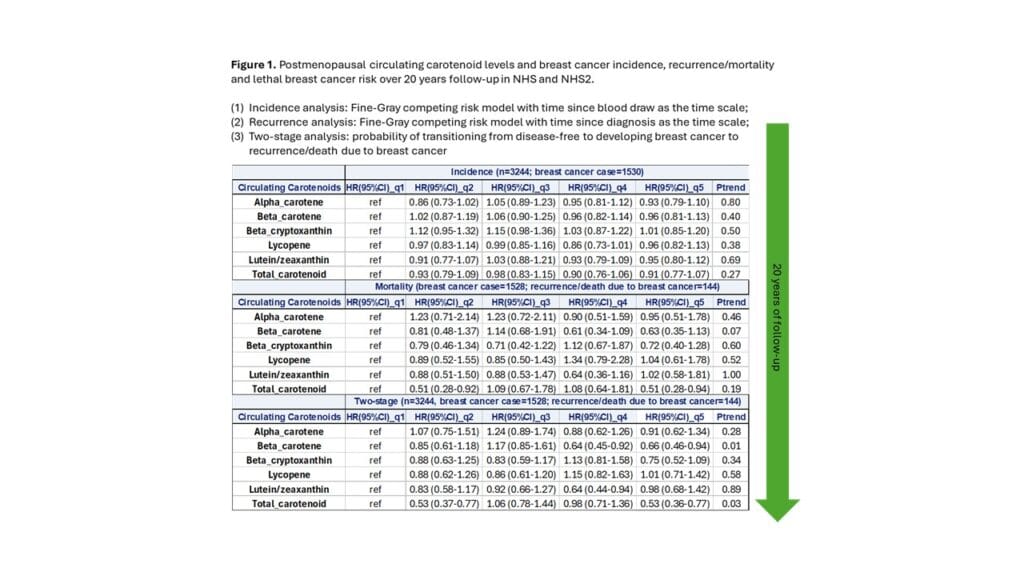Cancer
Pre-diagnostic circulating carotenoids and lethal breast cancer risk: a novel approach for precision prevention Cheng Peng* Cheng Peng Boyang Chai A. Heather Eliassen Bernard A. Rosner
Background: Identifying pre-diagnostic modifiable factors that are associated with lethal breast cancer risk may provide targeted prevention strategies to those who are most likely to develop fatal disease. We sought to examine whether circulating carotenoid levels are associated with lower risk of lethal breast cancer.
Methods: This study included 6,071 Nurses’ Health Studies participants who were cancer-free at the time of carotenoid measure and followed over 20 years, during which 2,910 incident breast cancer cases arose, and 249 cases had recurrence or died due to breast cancer. Plasma carotenoids (α-carotene, β-carotene, β-cryptoxanthin, lutein/zeaxanthin, and lycopene) were assayed using high-performance liquid chromatography and total carotenoid was calculated as the sum of individual carotenoids. Based on a multi-state model which combined separate estimates for breast cancer incidence and recurrence/mortality due to breast cancer among cases, we estimated the probability of transitioning from disease-free to developing breast cancer to breast cancer recurrence/death over a 20-year period. We performed stratified analyses by menopausal status, smoking, and body mass index, assessed at blood draw.
Results: Comparing to the lowest quintile (Q1), women in the highest quintiles (Q5) of β-carotene and total carotenoids had a 30% and a 38% lower risk of lethal breast cancer (β-carotene: HR=0.70, 95% CI: 0.52-0.94; total carotenoid: HR=0.62, 95% CI: 0.46-0.85). However, there was significant heterogeneity by menopausal status and smoking, with stronger inverse associations observed for women who were postmenopausal (total carotenoid: Q5 vs. Q1 HR=0.53) or reported ever smoking (total carotenoid: Q5 vs. Q1 HR=0.50). Associations between other carotenoids and lethal breast cancer risk were in general not significant.
Conclusion: Our findings suggest that circulating carotenoids may present a novel primary prevention strategy targeting the lethal form of breast cancer.

